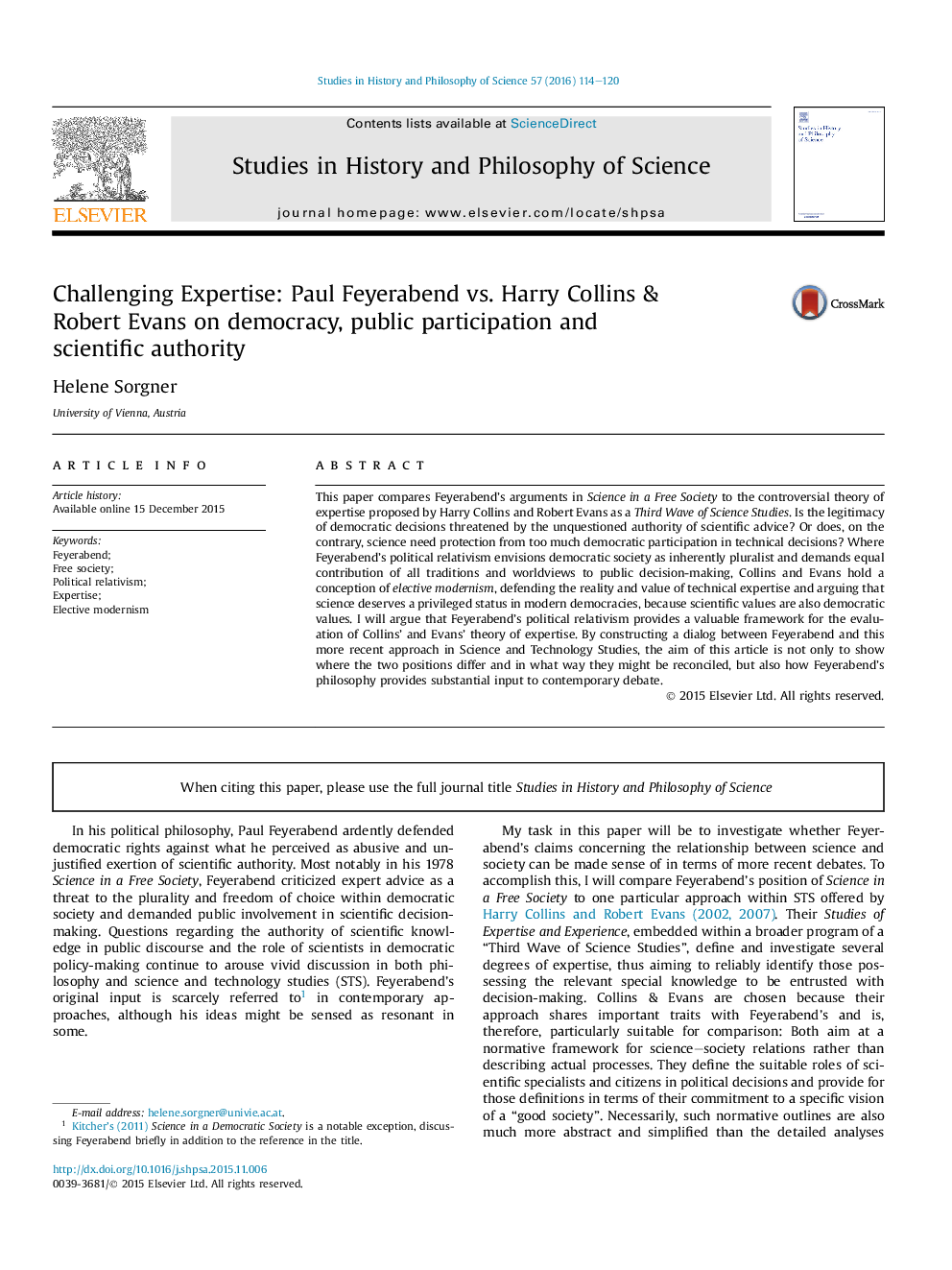| Article ID | Journal | Published Year | Pages | File Type |
|---|---|---|---|---|
| 1160271 | Studies in History and Philosophy of Science Part A | 2016 | 7 Pages |
•Comparing Feyerabend's arguments in Science in a Free Society to the controversial theory of expertise by Collins and Evans.•Is the democratic legitimacy of policy making threatened by scientific expert advice?•Or does, on the contrary, science need protection from too much democratic participation?
This paper compares Feyerabend's arguments in Science in a Free Society to the controversial theory of expertise proposed by Harry Collins and Robert Evans as a Third Wave of Science Studies. Is the legitimacy of democratic decisions threatened by the unquestioned authority of scientific advice? Or does, on the contrary, science need protection from too much democratic participation in technical decisions? Where Feyerabend's political relativism envisions democratic society as inherently pluralist and demands equal contribution of all traditions and worldviews to public decision-making, Collins and Evans hold a conception of elective modernism, defending the reality and value of technical expertise and arguing that science deserves a privileged status in modern democracies, because scientific values are also democratic values. I will argue that Feyerabend's political relativism provides a valuable framework for the evaluation of Collins' and Evans' theory of expertise. By constructing a dialog between Feyerabend and this more recent approach in Science and Technology Studies, the aim of this article is not only to show where the two positions differ and in what way they might be reconciled, but also how Feyerabend's philosophy provides substantial input to contemporary debate.
